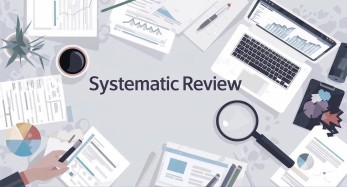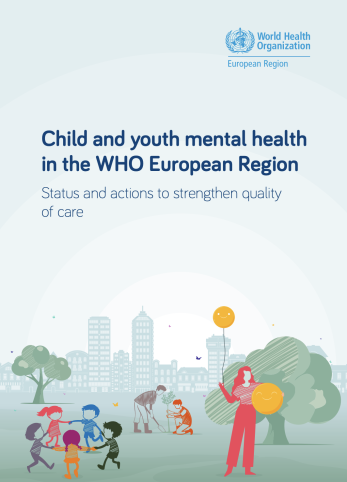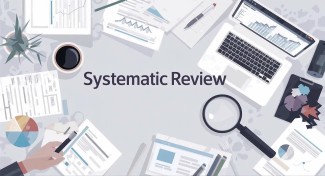Cerca
Public Health
The intersection of substance use with broader public health concerns.
The power of people who use drugs as mass media influencers in changing public opinion during the global overdose epidemic
Background
Thousands of people have lost their lives due to overdose-related fatalities linked to the potent synthetic opioid epidemic, as mortalities increase annually. British Columbia (B.C.) Canada has been an exception, where the...
Psychological and Addiction-Related Impacts of Artificial Intelligence on Society
BACKGROUND:
The expanding role of artificial intelligence (AI) in mental healthcare presents significant opportunities and challenges. AI has the potential to fundamentally transform traditional healthcare practices, particularly in...
“I Can’t Do It Without My Phone”: Nomophobia and Its Impact on Academic Performance – A Systematic Literature Review
INTRODUCTION:
Nomophobia, the fear of losing access to a mobile phone or the Internet, is becoming increasingly prevalent among students due to the rapid digitalization of society and can affect their ability to concentrate, the quality of...
Network analysis of Internet Gaming Disorder IGD and Gaming Motivation GAMS
INTRODUCTION:
The global rise in online gaming has led to increased prevalence of Internet Gaming Disorder (IGD), now recognized by both the DSM-5 and ICD-11, albeit with differing diagnostic criteria. However, the relationships among IGD...
Exploring the Impacts of Helperseekers’ Knowledge, Belief, and Attitude on the Choice of Treatment for Substance Use Disorder
BACKGROUND:
Recently, Abia State—like many other states in Nigeria—has experienced a growing number of deaths related to substance use, leading to increased cases of substance use disorders and comorbidities. Family members and relatives...
A systematic review of reviews on comprehensive community initiatives to prevent or reduce alcohol and other drug harms
Background and Aims:
Comprehensive community initiatives (CCI) aimed at reducing or preventing alcohol or other drug (AOD) harms incorporate multiple initiatives delivered to whole communities to effect community-level change on...
The Promotion of Alcohol, Cannabis, Gambling, Tobacco and Vaping Products: A Comparative Analysis of the Potential of Legal Frameworks to Limit Exposure Among Minors
Promotions deemed attractive to minors concerning alcohol, cannabis, gambling, tobacco and vaping are circulating in media outlets and places where minors are very active. This report examines the different legal frameworks in Canada that...
Addressing Cannabis Hyperemesis Syndrome in Canada
Cannabis is one of the most commonly used substances in Canada. In 2024, about one in four people (26%) people living in Canada said they had used cannabis within the past year, and 6% said they used it daily or almost daily (Health Canada...
Why Philanthropy Must Back Systemic Approaches to Youth Mental Health
Youth mental health is a growing global crisis, with most mental health conditions beginning before the age of 25. Young people today face increasing stress from poverty, academic and social pressure, bullying (including online), climate...
Recent Pattern of Substance Use Among Patients with Substance Use Disorders in a Rehabilitation and Treatment Centre for Addiction in Dubai
BACKGROUND:
Substance use disorders (SUDs) are a major contributor to global disease burden, premature mortality, and social disruption. While international data demonstrate shifting trends in polysubstance use, evidence from the United...
Perceptions of Law Enforcement Personnel and Public Health Professionals on Synthetic Drug Use in Nigeria
BACKGROUND:
Nigeria is one of the countries in the world severely impacted by synthetic drug production and use, yet lacks fundamental understanding of the synthetic drug market, how many people use, and how much they use.
AIMS:
The aims...
Artificial Intelligence in Substance Use Prevention, Treatment, and Recovery Support: Selected Readings and Practical Insights
Artificial intelligence (AI) is transforming how we understand and manage substance use disorders (SUDs). The following curated readings highlight current developments, practical applications, and ethical considerations for AI in this field...
Artificial Intelligence in Addiction: Challenges and Opportunities
The article explores how artificial intelligence (AI) is currently used — and could be used — in the field of addiction research and treatment. The authors note that AI (machine learning, data mining, predictive analytics) offers...
Generative Artificial Intelligence-Enabled (GenAI) Digital Mental Health Medical Devices
AGENDA
2025 FDA Perspective: Generative Artificial Intelligence-Enabled (GenAI) Digital Mental Health Medical Devices
FDA Perspective: Regulatory Considerations for Digital Mental Health Therapeutics
Topic 1: Large Language Models in...
Ethics of artificial intelligence in medicine
This article reviews the main ethical issues that arise from the use of artificial intelligence (AI) technologies in medicine. Issues around trust, responsibility, risks of discrimination, privacy, autonomy, and potential benefits and harms...
Revolutionizing Addiction Medicine: The Role of Artificial Intelligence
Introduction
Addiction medicine is becoming more of an issue as addiction-related problems continue to plague people all over the globe, resulting in serious health consequences. Addiction has become increasingly prevalent in recent years...
Exploring the Potential and Challenges of Digital and AI-Driven Psychotherapy for ADHD, OCD, Schizophrenia, and Substance Use Disorders: A Comprehensive Narrative Review
Purpose of the Review:
Psychotherapy remains a fundamental component of mental health treatment, yet it encounters significant barriers to accessibility and efficacy. The integration of digital therapies, encompassing e-Health, m-Health...
Digital interventions targeting excessive substance use and substance use disorders: a comprehensive and systematic scoping review and bibliometric analysis
Addictive substances are prevalent world-wide, and their use presents a substantial and persistent public health problem. A wide range of digital interventions to decrease use and negative consequences thereof have been explored, differing...
A systematic review of chatbot-assisted interventions for substance use
Objectives: This study systematically reviewed research on the utilization of chatbot-related technologies for the prevention, assessment, and treatment of various substance uses, including alcohol, nicotine, and other drugs.
Methods: Foll...
Substance Use Prediction Using Artificial Intelligence Techniques
The study examines whether artificial intelligence can reliably predict the use of specific substances in Finland, including cannabis, ecstasy, amphetamine, cocaine and non-prescribed medicines. Using data from the 2022 Finnish National...
Share the Knowledge: ISSUP members can post in the Knowledge Share – Sign in or become a member







